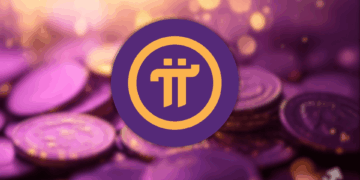While regulators worldwide scrutinize crypto-led industries in the current bear market, Brazilian regulators are diving deeper into the crypto industry, especially with its latest regulations.
On Tuesday evening, the Brazilian Chambers of Deputies voted for a bill to approve a complete regulatory framework for the use and trading of cryptocurrencies in the country.
This is not to say that the country has approved Bitcoin as a legal tender; it means that Brazil now recognizes bitcoin as a digital representation of value that could be owned as an investment asset and used as a means of payment in the South American Nation.
The bill introduced earlier in April by Senator Flávo Arns got approved by the Senate in the same month. All that is required now is the signature of the Brazillian President, Jair Bolsonaro, before it is signed into law.
The bill authored by deputy Aureo Ribeiro and signed under code PL4401/2021 applies to a sector that it refers to as “virtual assets” and specifies the creation of a “virtual service provider” license. Companies, including crypto firms and exchanges, should request this license. Companies must adapt to the new rules 180 days before the law is enforced.
Additionally, the text stipulates that airlines include virtual currencies and traveler’s rewards in the definition of “payment agreements”; this is to be supervised by the country’s Central Bank and will allow the government to safeguard citizens from crypto-related scams and money laundering.
There is no doubt that Brazil has made significant progress regarding crypto adoption among investors and regulation by the legislature. Brazil currently has the most crypto ETFs in Latin America. Most brokers and powerful banks in the country offer crypto services like custody or token offerings and exposure to cryptocurrency investments. Itáu, one of Brazil’s largest banks, is tokenizing assets for its future services.
It is expected that when the bill becomes law, the executive branch (The Brazilian president and its Ministers) will select the government bodies overseeing the market. According to the statement, the Central Bank of Brazil will be in charge when bitcoin is used as payment. In contrast, the CVM (The Brazilian Securities and Exchange Commission) regulates the use of crypto assets as investments.
It is important to note that the legislation was crafted by the Central Bank of Brazil (BCB) and the CVM with assistance from the Federal Tax Authority (RFB).
The legislation regulates crypto services providers like exchanges who must abide by specific rules if they must operate in the country. It defines “service providers” as entities who engage in the transfer, trading, custody, administration, or sale on behalf of a third party—noting that crypto service providers will only operate in Brazil upon the explicit authorization of the federal government.
While the bill contains no specification on issuing a central bank digital currency, the country has made significant progress. An essential part of the legislation is the obligation that companies or service providers explicitly separate their funds from clients’ funds. The clause sought to act as a preventive measure to avoid similar occurrences like that of FTX However, it was rejected in the vote on Tuesday.
Is Brazil Poised to become a major Crypto Hub?
Ownership of digital assets and cryptocurrencies has increased extensively over the last two years; according to a recent report, about 16 million citizens, which accounts for 7.8% of Brazil’s population, own crypto assets.
This is an improvement from the country’s 4.9% population earlier in 2020. With a thriving crypto economy, Brazil has seen more citizens trade crypto assets like bitcoin than invest in the stock market. Legalizing crypto as a means of payment certainly boosts crypto’s adoption and the ecosystem’s expansion.















